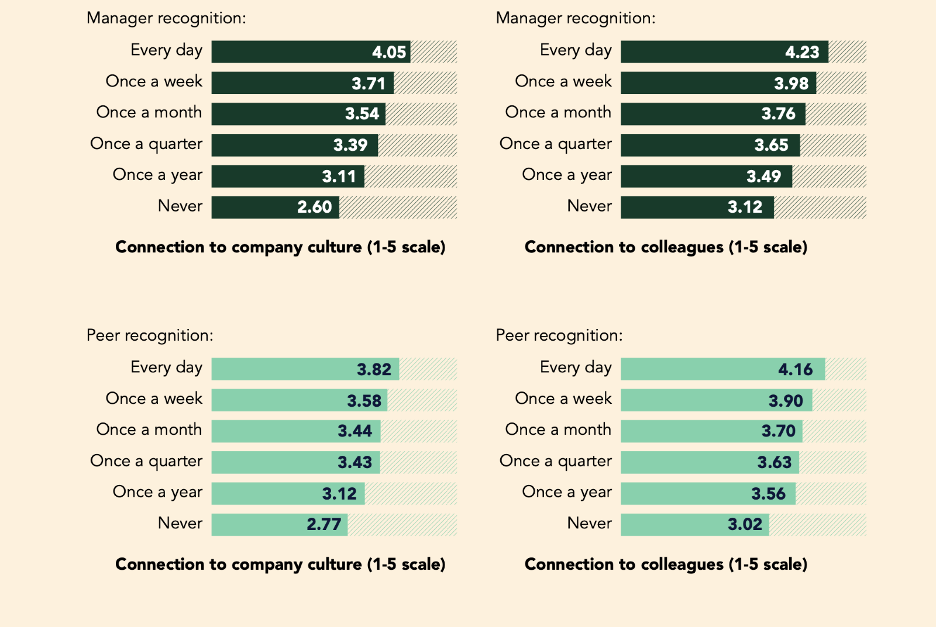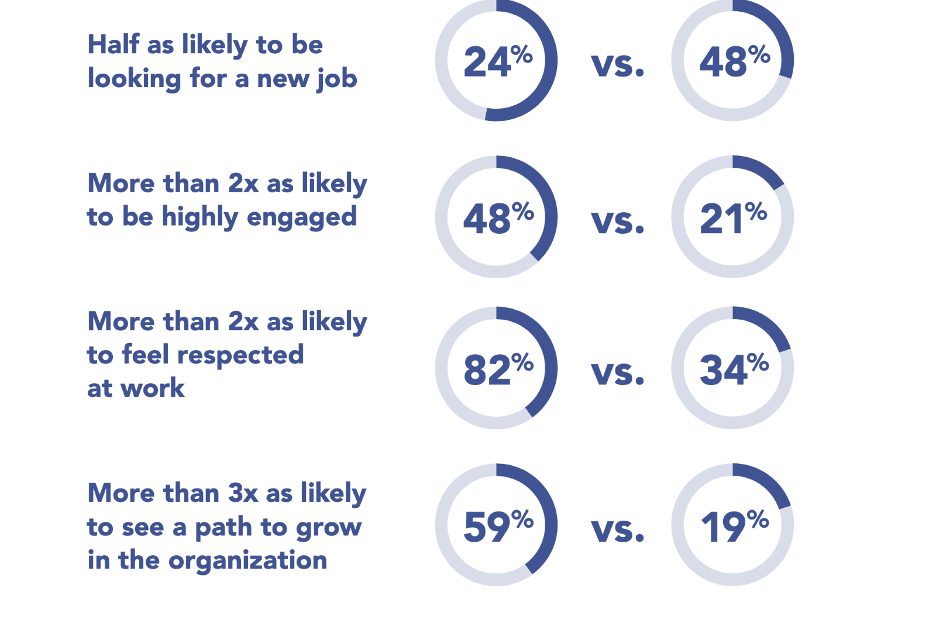Introducing the New Workhuman Survey Report: The State of Human Connection at Work
- COVID new hires haven’t settled in yet: Despite starting a new job in the middle of the pandemic amidst new recruiting methods, more of these workers describe themselves as highly engaged (44%) than anyone else. However, they also report feeling more overworked, burned out, stressed, and less psychologically safe than their more tenured colleagues. They are also more likely than employees hired pre-COVID (50% vs 33%) to report planning to look for a new job in the next year.
- Employees are willing to come back: HR professionals and recruiters should embrace the trend of boomerang employees – former employees who may have left the company but are willing to bring back what they’ve learned to the organization. Most job-seeking workers (62%) said they would return to a former employer. COVID new hires were more likely than their pre-COVID colleagues to consider a return (69% vs. 56%).
- The future of work should be more diverse, equitable, and inclusive: Seventy-two percent of workers reported DE&I being an important factor in terms of staying at their organization. That number was even higher for Gen Z workers (86%) and Black workers (87%). If they haven’t yet, companies should start devising an action plan.
- Workers want more human workplaces:Sixty-six percent of workers say they would appreciate more opportunities to celebrate personal life events at work, and yet 54% of organizations don’t currently celebrate those events (21% said their company used to celebrate prior to COVID-19). Remote workers employed at companies that commemorate life moments feel more respected (78% vs. 58%) and appreciated (75% vs. 44%) overall than remote workers at companies that do not. Across all ways of working, people feel more connected to colleagues than company culture, which shouldn’t come as a surprise since people are your culture.

- Employers should get into the appreciation business: When people were thanked in the last month, they’re half as likely to be looking for a new job, more than 2x as likely to be highly engaged, more than 2x as likely to feel respected at work, and more than 3x as likely to see a path to grow in the organization. The more recently someone has been thanked by a manager and/or peer, the greater their sense of connection to the company culture and their colleagues.

That impact is especially acute when managers recognize employees daily and when that praise is made public. Witnessing public thanks is associated with less burnout and stress. The more companies can amplify and socialize recognition, the more impact it will have across the organization. Giving praise: good for employees, good for business.
Amidst all these insights is one clear takeaway. Fostering a culture of belonging and taking the time to get to know employees as people with rich lives outside of work starts with putting well-being at the center of your HR strategy.
What’s next?
Schedule a demo to learn how Workhuman can transform your organization.
About the author
Mike Lovett
Mike is a senior content marketing specialist at Workhuman where he writes about the next era of the workplace. Outside the workplace, he’s an avid gardener, a frequent biker, a steadily improving chef, and a fantasy sports fanatic.